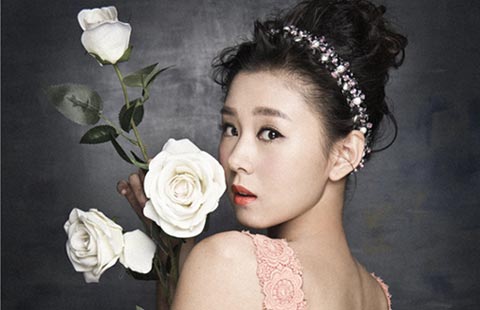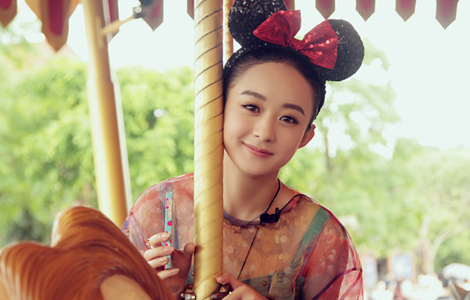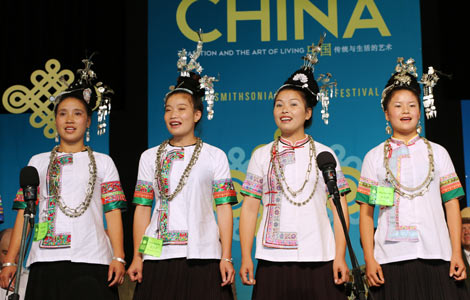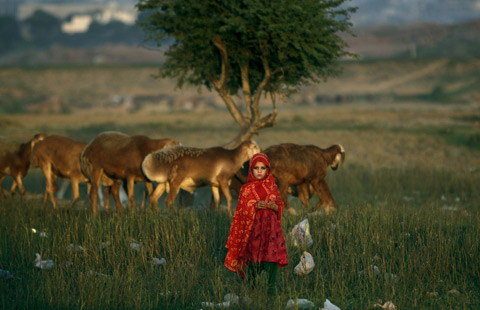Pentagrams on tower of babel
Updated: 2014-06-27 07:53
By Erik Nilsson (China Daily)
|
||||||||
 |
| Chinese turn out for distant World Cup |
 |
| How I help to bridge the gap |
 |
| Discovering Beijing through bicycling |
Like many women in China, she sports the icon without any hunch of its pornographic origins and connotations. Westerners will generally think of porn when spotting the emblem of what is arguably the world's most famous nudie magazine, which is banned here. But people who have spent some time in China will start to forget the symbol's original meaning.
The unwitting wearing of the bunny by sometimes very conservative women struck me as hilariously surreal when I first arrived.
Now, it's so ordinary that I even wear a Playboy Bunny most days.
I recently bought what are otherwise perfect pants-so ideal, I bought two pairs. The only problem, which I didn't immediately realize, is the belt loop is affixed with an irremovable metal tag bearing the Playboy Bunny.
I wear them anyway. I've become numb to the implications.
However, I realize the bunny in a bowtie dangling from my waist may stand out to other foreigners, especially new arrivals. (Also, in the West, the symbol wouldn't typically be worn by men, and especially not on business casual attire.) And I've found such symbol misinterpretation works in reverse.
I never wear my "duck" shirt in public since several giggling Chinese friends pointed out to me the presentation of the fowl's image suggested a yazi ("duck")-that is, a male sex worker.
I'd unwittingly purchased a shirt adored with the Chinese equivalent of the male Playboy Bunny. I now only wear it at home and in the United States.
Globalization means many more Americans will be showing up in China wearing duck shirts. (Shirts featuring wildlife are popular in the US, especially among rural men.) And more outbound Chinese, especially women, will be wearing Playboy bunnies.
All without grasping what those symbols mean to host cultures.
Yet more Westerners are coming to recognize the distinction between the benevolent, water-dwelling and typically wingless Chinese dragon and the soaring, malevolent fired rakes of the West. There's even a movement in Chinese academia to replace the English word for dragon with the Chinese word, long.
But that may prove unnecessary. The interpretation is changing organically.
Perhaps the next story of the Tower of Babel globalization is constructing: rising above words to renovate symbolic language-a tier in which bunnies, ducks and dragons dwell in multiple countries with multiple identities better understood by everyone everywhere.
For more stories by expats in China, click here

 Jackson fans mark anniversary of star's death
Jackson fans mark anniversary of star's death
 Chen Kaige out of hospital
Chen Kaige out of hospital
 Photoshoots of actress Li Xiaomeng
Photoshoots of actress Li Xiaomeng
 Council of Fashion Designers of America Awards
Council of Fashion Designers of America Awards
 Fan Bingbing, first Chinese actress in Barbie Hall of Fame
Fan Bingbing, first Chinese actress in Barbie Hall of Fame
 Awarding ceremony of 2014 hito Pop Music held in Taipei
Awarding ceremony of 2014 hito Pop Music held in Taipei
 Zhao Liying's photo shoot for Children's Day
Zhao Liying's photo shoot for Children's Day
 'Taken 2' grabs movie box office crown
'Taken 2' grabs movie box office crown
Most Viewed
Editor's Picks
|

|

|

|

|

|
Today's Top News
Envoy rejects a 'zero-sum' strategic race
Chen Guangbiao's charity event provides lunch, no cash
Google unveils new products
Overseas services boosted by Alipay
Opinion: Fine twist in Sino-US military ties
Bigger Apple iPhones said to start mass output soon
Chinese investors discovering lure of Motor City
Pilots' 'mismanagement' causes Asiana crash
US Weekly

|

|







